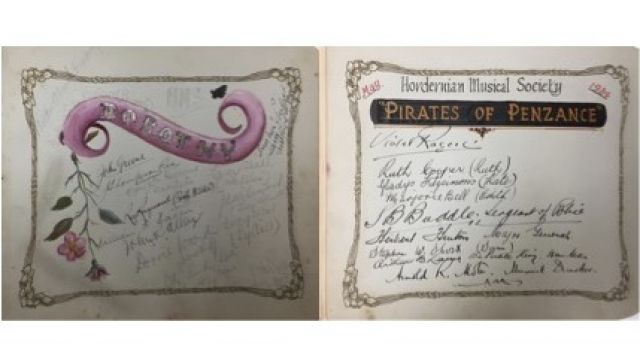Hidden World of Musical Society Memories
In the performing arts archives of the Seaborn, Broughton & Walford Foundation, an autograph book provides a glimpse into amateur musicals in the first half of the 20th Century, reports archivist Susan Mills.
A small, beautiful book with royal blue satin-like endpapers belonging to stage manager and producer Mrs Fred England (c.1870-1950) gives us a glimpse into the lives and personalities of those involved in amateur musical productions in Sydney and regional NSW from the 1900s to the 1940s. It contains not only autographs, but also wise proverbs, sketches and even paintings by those directed by Mrs England.
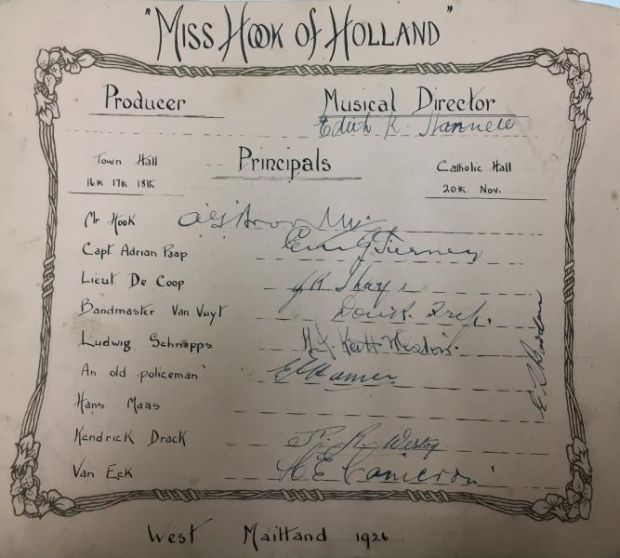
“Take life as you find it, but don’t leave it so,” wrote Gwenyth Dawe, Bathurst in 1944. “Tis better to smile and forget, than to remember and be sad,” scribed Florence Hogan in 1912. “A kettle sings when its full of water, but who the h_ _ l wants to be a kettle,” jibed Harry Kantor in 1913.
Then there are terms of endearment, such as “In your golden chain of friendship, regard me as a link” (Janet Bargwanna, Bathurst, 1944) and simply “Bravo Dear Mrs England” (H.M.S. Pinafore, Hordernian Musical Society, c.1933).
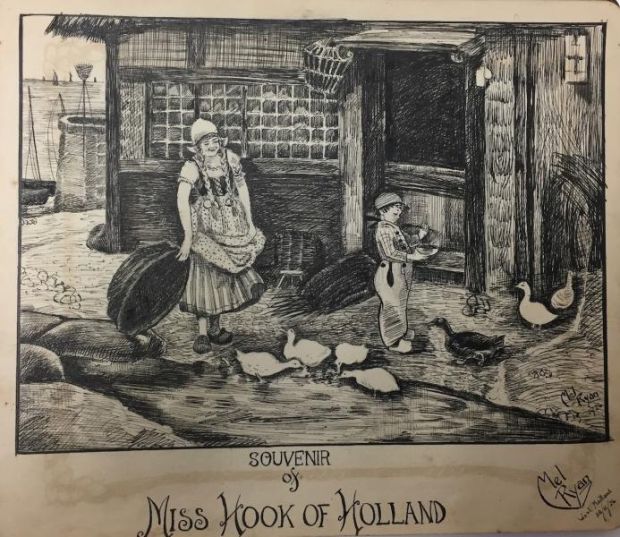
Born Bertha Peaty, during the 1880s and 1890s she was a Sydney dancer and chorus girl for J.C. Williamson’s Royal Comic Opera Company, before moving on to named roles in productions, mostly operettas in the same vein as Gilbert & Sullivan.
From the 1900s onwards, Bertha Peaty was always known as ‘Mrs Fred England’, the wife of baritone and actor Mr Fred England (1860-1940), who also performed in productions by J.C. Williamson’s Royal Comic Opera Company, among others.
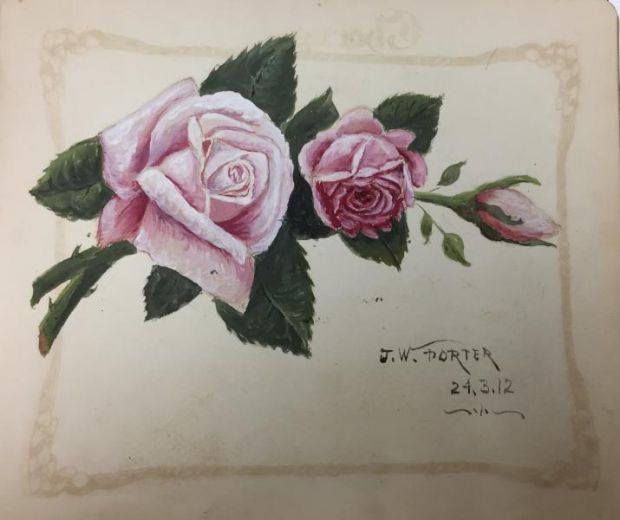
Performing in many similar productions, it’s no wonder their paths crossed. In fact, the pair had graced the stage together in the 1899 Royal Comic Opera Company’s production of The Geisha in Melbourne and Perth.
By 1901, Mrs Fred England, with past impressive experience on the J.C. Williamson stage, embarked on a new career as a tutor, stage manager and producer available for amateur musical societies in Sydney and regional NSW.
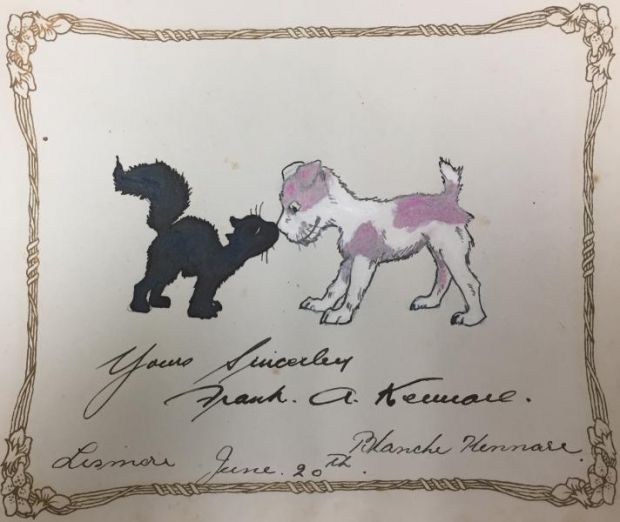
An early mention in the newspapers is for a production of The Mikado at the Railway Institute in Surry Hills, Sydney. “A special feature of the production is the manner in which the ladies of the chorus acquit themselves, and credit for their tuition is due to Mrs. Fred England.”
But on the stage, not everything always goes to plan. A columnist (‘Q’) in Punch newspaper, 9 May 1907, tells the humorous story of a performance of The Lily of Killarney by the Mosman Musical Society on Sydney’s north shore. The reviewer noted that Mrs Fred England recognised the importance of making believable the fall into water by Eily, the ‘Colleen Bawn’ (meaning ‘the fair maid’ in Gaelic), as she is drowned in one of the Lakes of Killarney by the boatman Danny Mann, and so it was to be accompanied by a spray of water. William Mogford Hamlet, a Mosman resident and incidentally well-known as the Government Analyst of NSW, was the stagehand in charge of throwing a bucket of water upwards.
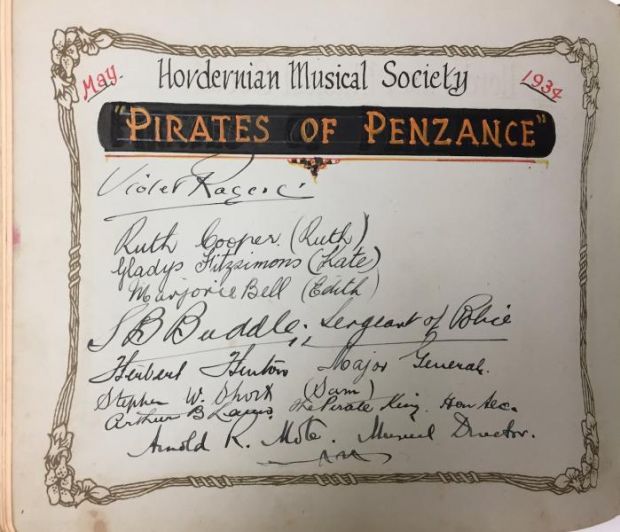
‘Q’ reports, “But occasionally something goes wrong even with the artistic achievements of genius. On the night that we were there, Danny Mann, who was in splendid voice, pushed the Colleen Bawn into the dark and gloomy depths of blue gauze with most convincing savagery. Miss Geraldine Rivers disappeared with her golden hair in ‘most admired disorder’. But there was absolutely no splash. She might have been Annette Kellerman doing her graceful dive for all the indications that were presented of a heavy body tumbling backwards into the water. Where, oh, where was Mr. Hamlet with his bucket? […] But after the lapse of about a minute, and when the other characters were hurriedly falling over the chromatic scale, the bucket of water suddenly shot out from the wings.”
Mrs Fred England continued her successful career as an in-demand stage manager and producer for amateur productions well into the 1940s, while after Mr Fred England’s retirement from the stage, he continued his career with J.C. Williamson from the 1920s as a ‘stage-door keeper’ for Sydney’s Theatre Royal.
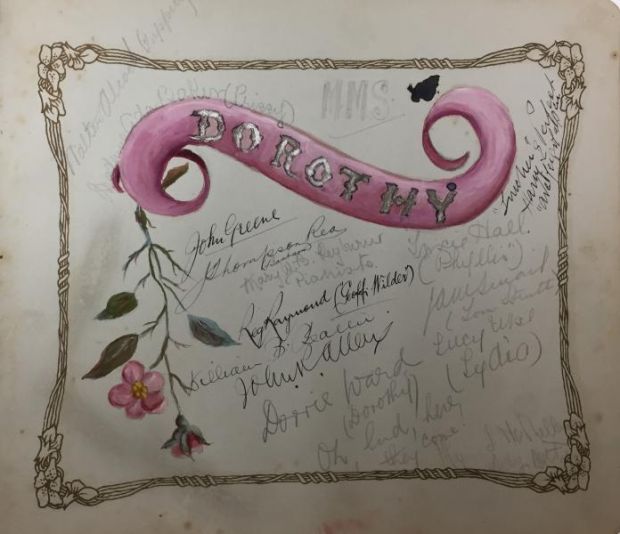
For more information visit.

